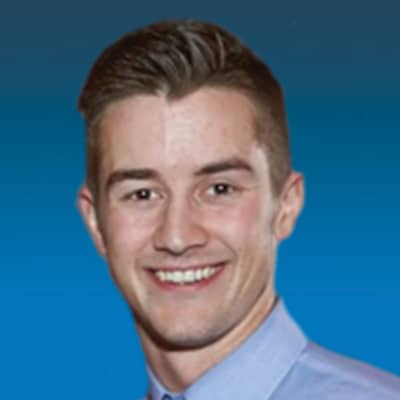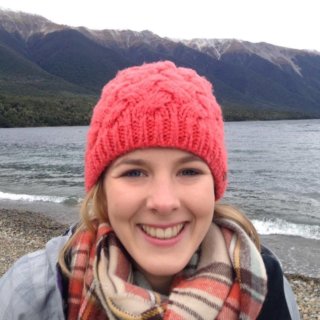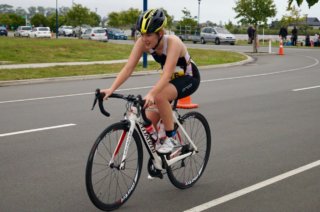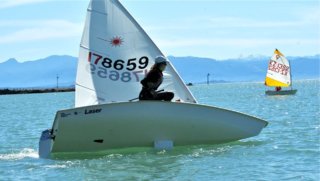
Alex Lindner
Laura Harding of the University of Canterbury in Christchurch, New Zealand, was selected from a strong field of submissions as the recipient of the 2019 PSC Scholarship, based on her outstanding academic achievement combined with a strong focus on practical work experience.

PSC Scholarship winner Laura Harding at Lake Rotoiti in the Nelson Lakes National Park
Laura has completed work assignments with Mitton Electronet and Electronet Transmission and is currently the University IEEE Committee Chairperson for 2019. We spoke with Laura about school, sailing, and the future of the NZ electricity industry.
First of all, congratulations on the scholarship! Did you grow up in the Christchurch area?
I grew up about 5 hours north in Nelson, on Tasman Bay. It’s adjacent to Golden Bay and Abel Tasman National Park, which features a coastal trail very popular among visitors and locals alike.
Nelson was the first city established in New Zealand’s South Island, by the explorer Abel Tasman. While it’s not as well-known as the neighboring province of Marlborough which pumps out almost 80% of the country’s wine, the Nelson region produces some very well-respected Pinot Noir and Chardonnay.
Are you a wine drinker?
(Laura laughs)
Not on my student budget. I never used to like wine, which meant I was not the best at selling it at my parent’s café. I have learned to like it since, but I am not into the “cask” wine that students often drink.
Best to stay away from wine in a box. What do you like to do outside of your studies?

Laura Harding cycling in her first triathlon
I tried a few triathlons in the last year. Since then, I’m not a huge fan of running but I have kept up the cycling and swimming. I’ve sailed since I was a child. I brought my boat down here to Christchurch and joined a yacht club, so I’m looking forward to doing more of that over the summer.
How did you first get into sailing?
My dad has always sailed; he got me into a sailing course when I was 8 and I’ve stuck with it since.
Do you and your dad sail together?
(Laughs)
Um, occasionally. After I capsized his boat we haven’t sailed quite so much. I mostly sail a singlehanded monohull dinghy.
Let’s take a step back. What happened??
My dad has a 20ft “Tornado” catamaran, which is typically crewed by two 80kg men (about 175lbs). However, one day I was recruited to sail with him. I typically sail a 14ft singlehanded monohull dinghy, so the Tornado is a bit of a different machine. We went out racing and the wind started to pick up. Going downwind you would usually put up a third sail called the spinnaker. However, as it was getting windy, I was hesitant to do this. To sail a catamaran fast, you need to ‘fly the hull’ opposite the sail; this is usually rather stable, but it turned out to be far less so without the spinnaker up. The boat leaned over too far, and I lost traction with the rudders. I hung on to the top hull, but dad fell overboard. The boat almost completely turtled (went upside down) before Dad and a nearby patrol boat managed to get it back up. I was not super popular that evening!
Hmm, that seems like a portentous name for a boat. Do you continue to race?
I have raced in the past. Growing up I did a few regattas. I might do a few regional regattas this summer but mostly it’s just a way to meet people down here in Christchurch. It gives me a way to meet people outside the engineering department. In the photo, I’m racing in Nelson Harbour. The harbour is unique in that it is protected by the Boulder Bank, a 13 km long rocky spit. They dug through part of it to get ships in and out of the harbour more easily. That part is called the “cut” and is in the background of the photo.
What drew you to power systems engineering as a field of study?
I started thinking about engineering in intermediate school. We took a quiz that recommends careers you might enjoy. The first page was all suggestions for engineering-related jobs. In my last year of high school, I visited the University of Canterbury’s High Voltage Laboratory and that’s what got me into power.
What did you like most about the High Voltage Lab?
The big sparks. I’ve always quite liked the large-scale equipment.
What specifically are you studying at UC?
I’m studying a Bachelor of Electrical and Electronic Engineering with honors, and a minor in Power Engineering.
Did you have any mentors or figures in your life that influenced your decision to go into engineering?
I had some influential teachers through school that really shaped my interest in the sciences. When I was ten years old, I had a teacher who was really into teaching maths and science. He was a keen hunter. One day he brought a chamois head into the class and we dissected it. We also learned about the different states of water with the whole class walking, running and jumping around depending on whether we were a solid, liquid or gas water molecule.
I think I’d prefer to be a solid. A chamois is like a goat, right?
Yes, they’re an introduced species and considered a pest in New Zealand, as they damage native vegetation.

Laura Harding racing in Nelson Harbour
What excites you the most about the future of the electrical power industry?
I guess that I don’t really know as an engineer where I’m going to end up. Here in NZ most of our power stations were put in about 60 years ago and are reaching the end of their life. So there’s going to be a lot of new development toward the start of my career that will really help me build my technical base. It feels like a good time to be in the industry.
You mentioned the amount of electrical infrastructure NZ will need to replace. At the same time, the traditional models of power generation and delivery are being revolutionized. What do you think your generation’s toughest engineering challenge will be?
Currently, about 85% of New Zealand’s electricity is produced via renewable means such as hydropower. By 2035 the government wants 100% renewable electricity generation. I think this is going to be the toughest challenge for my generation of electrical engineers in New Zealand. Particularly the cost of eliminating the last few percents of non-renewable resources
Laura Harding is the University of Canterbury IEEE Committee Chairperson for 2019.
The PSC Scholarship was established in 2005 with the support of the Electric Power Engineering (EPE) Centre to recognize academic achievement by students pursing courses in electric power engineering. The Scholarship is open to students in their 3rd professional year.
